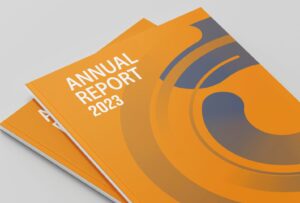According to records from the Alabama Secretary of State, Wynnfield Homeowners Association, Inc. last filed an annual report in 1999. As of today, it has been 26 years since the HOA submitted any such report, raising significant concerns about transparency, accountability, and legal compliance. While Alabama does not heavily regulate homeowners’ associations (HOAs), this prolonged gap in reporting underscores broader issues within the governance of the Wynnfield HOA.
In Alabama, HOAs are subject to minimal oversight. For HOAs formed after January 1, 2016, state law requires the filing of certain disclosure documents with the local Probate Judge’s Office, which then transmits them to the Secretary of State for public posting. However, HOAs established before this date, like Wynnfield, are exempt from this requirement. These older associations may choose to voluntarily file documents, but they are not legally obligated to do so. As a result, many pre-2016 HOAs operate without meaningful regulatory scrutiny, which can lead to governance concerns, especially when accountability mechanisms—like the annual filing of reports—are ignored.

Under Alabama Code § 35-20-5(a), all homeowners’ associations formed after January 1, 2016, must be structured as nonprofit organizations. This law aims to create consistency in governance and to clarify the responsibilities and rights of HOAs, their members, and their directors. It mandates that newer HOAs comply with Chapter 3 of Title 10A, which outlines the obligations, duties, and rights of nonprofit corporations in Alabama. While this legal framework provides some oversight for newer associations, it does not retroactively apply to older ones like Wynnfield, leaving a governance gap for associations established before 2016.
The Wynnfield HOA’s failure to file reports for over two decades raises several red flags. Filing annual reports is not just a formality—it is a mechanism for ensuring that associations maintain up-to-date records, operate transparently, and fulfill their obligations as corporations. Without these filings, members have limited insight into the HOA’s financial health, leadership structure, and governance practices. This lack of transparency fuels distrust among homeowners, who may feel excluded from the decision-making process and unaware of how their dues are being utilized.
Furthermore, the lack of regulation for older HOAs in Alabama leaves residents with limited avenues for recourse. Unlike newer associations, which are required to meet specific filing and disclosure requirements, pre-2016 HOAs operate with much greater autonomy. This disparity creates an uneven playing field for homeowners seeking accountability from their associations.
The governance gap in the Wynnfield HOA is emblematic of broader issues facing Alabama’s older HOAs. Without mandatory reporting or oversight, these associations can operate with minimal transparency, often to the detriment of their members. For Wynnfield residents, the failure to file annual reports since 1999 highlights a pattern of neglect and raises serious questions about the HOA’s adherence to its fiduciary responsibilities.
Many homeowners are now calling for reforms, including a push for voluntary transparency measures, even for older associations. They argue that regardless of legal requirements, filing annual reports and maintaining accessible records are essential practices for fostering trust and ensuring the long-term stability of any HOA. As the Wynnfield HOA continues to face criticism, its lack of reporting is just another indicator of the urgent need for a cultural and operational shift within the organization.
